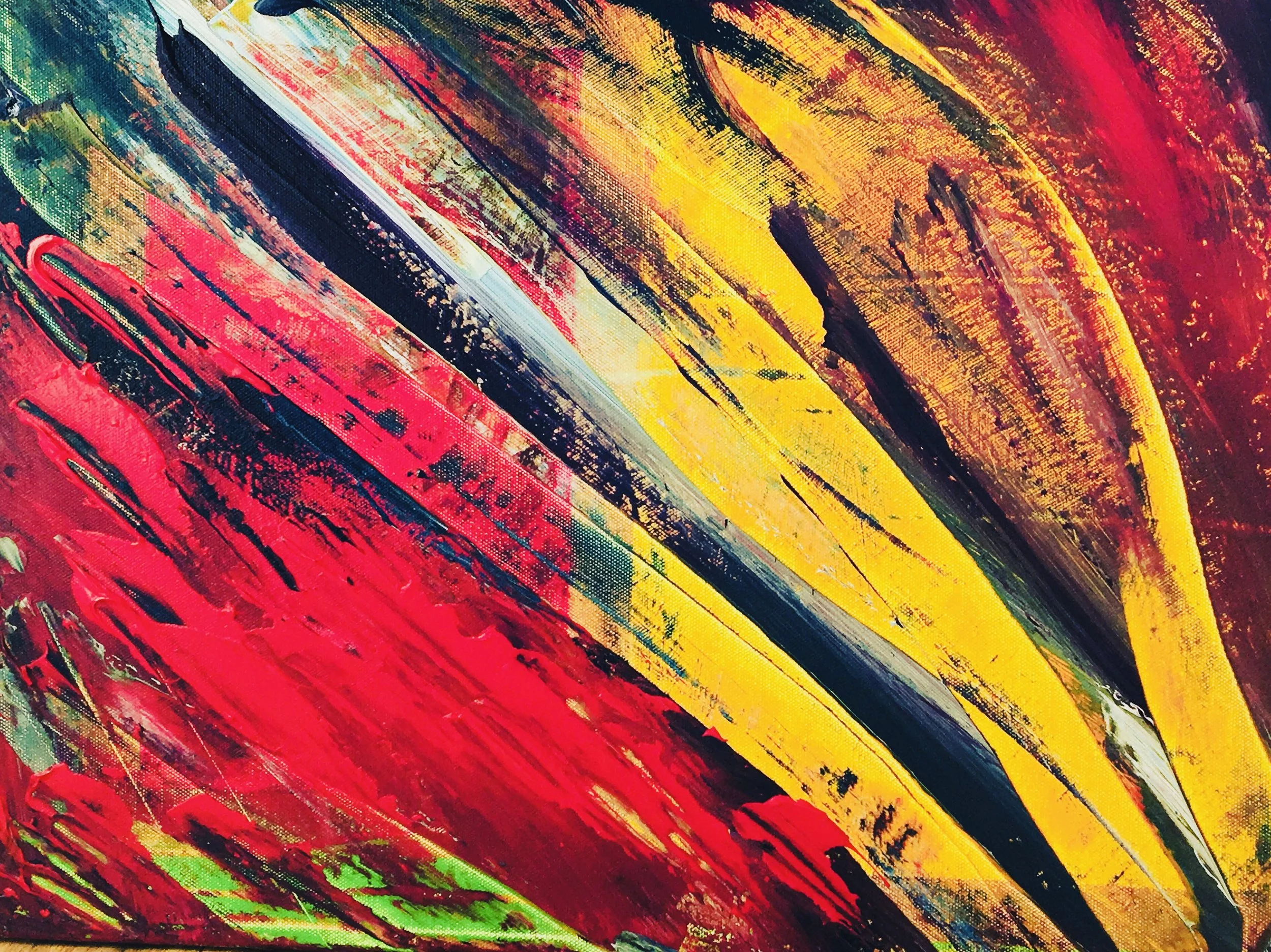
ECOLOGICAL LEARNING PARTNERS
A research practice making relational infrastructure visible in early childhood and educational systems

We're a research practice specializing in partnership infrastructure for early childhood and educational systems. We use contemplative mapping methodologies to make relational infrastructure visible in learning communities—revealing how contexts, relationships, and positions shape what practitioners believe and how they act
The Problem
Traditional professional preparation focuses on practice and competencies while skipping over the person and the arrangements that enable their work. That gap shows up most in how we prepare, develop, and support practitioners—we ask them to engage in complex relational work without the foundational capacity to notice what's happening in their own bodies, understand how their positions shape what they see, or recognize how context influences their practice. This grounding in self and position is essential—it's where work like culturally responsive practice actually begins. Contemplative mapping emerged from this understanding—giving practitioners systematic tools to build this foundational capacity.
The Solution
We help learning communities build the practice architectures that enable ongoing learning and growth. Through contemplative mapping, we make visible the relational infrastructure already shaping your system—revealing how contexts, relationships, and institutional dynamics influence how practitioners experience their work.

How We Work
Understand your context.
We learn about your priorities, strengths, implementation processes, and what's shaping collaboration.
Map what’s really happening.
We help practitioners learn about themselves, their systems, and their practice.
Build capacity from self to system.
Practitioners develop capacity to observe patterns, recognize how context shapes their work, and navigate their contexts skillfully.
Embed sustainable infrastructure.
We build infrastructure that supports ongoing implementation in ways that fit your culture and priorities. Once it's in place, you move forward independently.

Our Methodology:
Contemplative Mapping
Contemplative mapping combines systematic observation with contemplative inquiry to reveal patterns that conventional analysis alone misses.
The methodology includes three approaches:
Life mapping - Practitioners create visual representations of their own educational journeys, discovering how personal experiences shape professional responses. When practitioners map their own school experiences, they often discover patterns—like how their fear of math teachers shapes how they respond to children who struggle, or how feeling excluded as a child influences their commitment to inclusion.
Situational mapping - Teams map the people, policies, resources, and conversations affecting their work, making visible the institutional dynamics influencing collaboration. Teams identify who actually makes decisions, where communication breaks down, what policies create barriers, and how competing priorities across organizations affect individual and partnership work.
Practice mapping - Practitioners observe and document their own embodied practices over time, building capacity to see what's actually happening rather than what we assume is happening. Practitioners notice patterns in how they move through their day, what physical spaces support or constrain practice, and how their own body signals when something needs attention.
Together these approaches help practitioners develop and refine their discriminative awareness, or their capacity to observe institutional dynamics and relational patterns without reactive judgment, creating space for more skillful responses.
How We Partner
We work with learning communities to build the practice architectures that support ongoing learning and growth. Through life mapping, situational mapping, and practice mapping, we work from self to system—making visible the invisible ecosystems where learning happens and revealing how our contexts, ourselves, and our relationships shape what we believe and how we act.
The process is collaborative and iterative. We structure conversations that invite practitioner voices into examining priorities, visioning, and action planning. Rather than imposing external solutions, we create space for teams to identify their own strengths, examine what matters in their specific context, and develop approaches that align with their culture and mission.
Practitioners develop capacity to observe the relational infrastructure shaping their experience, recognize how their own contexts and histories influence their responses, and sustain ongoing reflection. Districts and programs identify where existing strengths can be better leveraged, what institutional barriers prevent collaboration, and how to build sustainable support structures.
We work together to build your capacity to navigate this complexity independently. When the infrastructure is embedded and working, we step back. You continue.

About Sarika S. Gupta, Ph.D.
Traditional professional preparation and development in education focuses on practice and competencies while skipping over the person and the arrangements that enable their work. My work helps practitioners reconnect with themselves, their why, and other people through contemplative mapping of self and system, and helps system designers build the practice architectures—the language, time, and power arrangements—that make sustainable implementation possible.
I've spent 25 years working in educational systems as a classroom teacher, instructional coach, technical assistance provider, university faculty member, and researcher. My master's, doctorate, and postdoctoral fellowship were funded by OSEP training grants in early intervention and early childhood special education systems-building. I hold a Ph.D. in Special Education, I've maintained an Iyengar yoga practice for 17 years, and I'm completing an M.S. in Data Science to explore computational approaches to mapping and scaling contemplative practices in professional development. This interdisciplinary lens shapes how I understand connection and responsiveness in educational systems.
Working across systems levels—from classrooms to state implementation to federal policy—showed me the gap between how systems are designed and how they actually work. Professional development asks practitioners to engage in complex relational work without providing the foundational capacity to notice what's happening in their own bodies, to understand how their positions shape what they see and experience, or to recognize how context influences their beliefs and actions. This grounding in self and position is essential—it's where more complex work like culturally responsive practice actually begins.
I founded Ecological Learning Partners LLC as a research practice focused on partnership infrastructure, developing contemplative mapping methodologies that give practitioners systematic tools to observe relational infrastructure using their own contemplative capacity as the instrument.
Let’s Talk
We partner with learning communities—districts, state agencies, higher education institutions, and early childhood programs—to build the practice architectures that support sustainable implementation. Through contemplative mapping, we make visible the relational infrastructure shaping how practitioners experience their systems and help teams develop capacity to navigate complexity independently.
Resources & Publications
-
Gupta, S. S. (2023). Building pre-k students' skills to CoDesign the classroom. Edutopia. https://www.edutopia.org/article/pre-k-classroom-design
Gupta, S. S. & Nagasawa, M. (2023). WeDesign: Conceptualizing a process that invites young children to CoDesign inclusive learning spaces. Contemporary Issues in Early Childhood. https://doi.org/10.1177/14639491231179000
Gupta, S. S. (2022). How preschool teachers can benefit from mindful thinking. Edutopia. https://www.edutopia.org/article/how-preschool-teachers-can-benefit-mindful-thinking
Gupta, S. S. (2022). Using project-based learning in professional development for preschool teachers. Edutopia. https://www.edutopia.org/article/using-project-based-learning-professional-development-preschool-teachers
Gupta, S. S. (2020). Voices from the field: Why aren't we talking about teacher well-being with inclusion? Young Exceptional Children, 23(2), 59-62. https://doi.org/10.1177/1096250619846581
Gupta, S. S. & Glen, J. (2020). Storytelling in a rock study: Using emergent learning and universal design to promote every child's learning in an inclusive preschool classroom. Childhood Explorer. https://www.childhoodexplorer.org/emergentcurriculum
Gupta, S. S. (2019). Engaging young children and families as design partners in the learning process: Reflections from an inclusive preschool classroom in Washington, DC. Childhood Explorer. https://www.childhoodexplorer.org/design-partners
-
Gupta, S. S., Cheatham, G. A., Strassfeld, N., **Zhu, X., Medellin, C. & Nagasawa, M. (2024). Examining the ecology of preschool inclusion in New York City: A mixed-methods study underway. Contemporary Issues in Early Childhood. https://doi.org/10.1177/14639491241229229
Gupta, S. S. & Rous, B. S. (2016). Understanding change and implementation. How leaders can support inclusion. Young Children, 71(2), 82-91. https://www.jstor.org/stable/ycyoungchildren.71.2.82
Lieber, J., Butera, G., Hanson, M., Palmer, S., Horn, E., Czaja, C., Diamond, K., Goodman-Jansen, G., Daniels, J., Gupta, S., & Odom, S. (2009). Factors that influence the implementation of a new preschool curriculum: Implications for professional development. Early Education and Development, 20(3), 456-481. https://doi.org/10.1080/10409280802506166
Gupta, S. S. & Guha, M. L. (2019). Conversations About Inclusion at the Center for Young Children at the University of Maryland, College Park: Final Summary. New York: Hunter College CUNY. 33 pages.
-
Gupta, S. S. (2021). Mapping the design and facilitation of critical self-reflection in a culminating clinical course for early childhood special education teacher candidates. The New Educator, 18(1-2), 42-60. https://doi.org/10.1080/1547688X.2021.2005855
Gupta, S. S. & **Lewin-Smith, J. (2020). Employing design-thinking to create opportunities for ECSE teacher candidate reflection through infographic design in an online course. Distance Learning, 17(2), 11-23.
Gupta, S. S. (2020). Building practitioner resilience for change in EI/ECSE. Young Exceptional Children, 24(1), 3-15. https://doi.org/10.1177/1096250620913258
Gupta, S. S. & Daniels, J. (2012). Coaching and professional development in early childhood classrooms: Current practices and recommendations for the future. NHSA Dialog, 15(2), 206-220. https://doi.org/10.1080/15240754.2012.665509
-
Gupta, S. S., Sherif, V., & Zhu, X. (2023). Re-examining state Part C early intervention leaders' views through a positive lens on leadership: A qualitative secondary analysis. The Qualitative Report, 28(2), 517-543. https://doi.org/10.46743/2160-3715/2023.4786
Tirrell-Corbin, C., Sweet, S., Gupta, S., & Lieber, J. (2016). Evaluation of the birth to five service delivery models in Maryland – Phase I. College Park: University of Maryland Center for Early Childhood Education and Intervention. 269 pages.
Tirrell-Corbin, C., Lieber, J., Cummings, K., Jones Harden, B., Klein, E., Silverman, R., & Gupta, S. (2016). Evaluation of the efficacy of Maryland's Race to the Top—Early Learning Challenge grant. College Park: University of Maryland Center for Early Childhood Education and Intervention. 183 pages.
Ruggiero, T., Gupta, S., Nicholas, A., & Mauzy, D. (2016). State spotlight on data use. Maryland: Establishing partnerships to build data use capacity. Menlo Park, CA: SRI International.
LaRocco, D. J., Bruns, D. A., Gupta, S. S. & Sopko, K. M. (2014). National early childhood special education leadership summit: Final report February 2014.
Gupta, S. S. (2011). Strategies to facilitate and sustain the inclusion of young children with disabilities [Policy Brief]. Denver, CO: The Colorado Center for Social Emotional Competence and Inclusion. 4 pages.
Sarpatwari, S. S. (2006). A qualitative analysis of the 1st Annual Joint Technical Assistance and Dissemination Conference. Washington, DC: U.S. Department of Education, Office of Special Education Programs. 10 pages.
-
Gupta, S. S. (2019). Unraveling resistance in my journey to truth. Yoga Samachar, 23(1), 47-48.https://issuu.com/iynaus/docs/22_yoga_samachar_ss2019/s/11206351
Gupta, S. S. (2025). The myna bird knows her name. Lion’s Roar-Bodhi Leaves. https://www.lionsroar.com/the-myna-bird-knows-her-name/
Gupta, S. S., & Zhu, X. (2026). Using situational mapping to explore collaborative dynamics in research-practice partnerships. NNERPP Extra, 8(1), 12-20. https://nnerppextra.rice.edu/resources/how-might-situational-mapping-be-used-in-rpps/
Current work explores how contemplative mapping methodologies apply across professional development, research-practice partnerships, and teacher preparation, with pieces forthcoming in 2026 and 2027.


